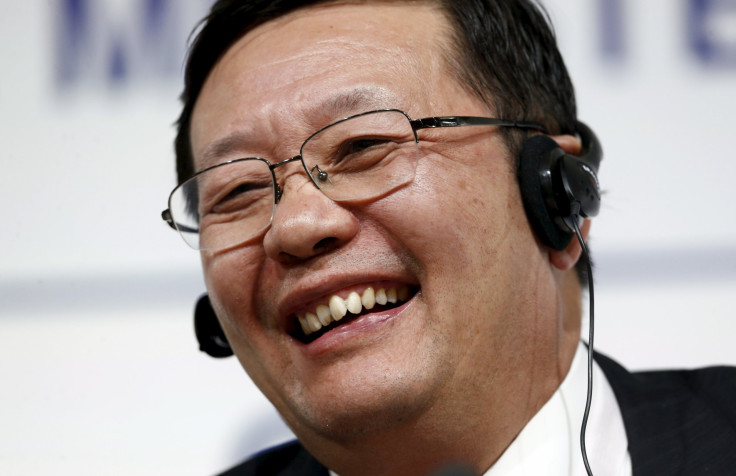Interest Rate Hike 2015: China Warns Against Federal Reserve Increase Because Of Critical Dollar

The United States shouldn't raise interest rates to avoid hurting developing nations dependent on the U.S. dollar, China's finance minister said. Lou Jiwei said the dollar remained critical to the global economy.
"The United States isn’t at the point of raising interest rates yet, and under its global responsibilities, it can’t raise rates," Lou said in an interview published in the China Business News Monday. He spoke during the annual meeting of the World Bank and International Monetary Fund in Lima, Peru.
Lou was optimistic about Beijing's economic future, but warned officials need to manage China's slowdown carefully. “The slowing of China’s economic growth is a healthy process, but it is a sensitive period. The Chinese government must make accurate adjustments, keeping the economy within a predictable space while continuing to promote internal structural reforms,” he said.
Asian markets rallied after the U.S. Federal Reserve moved to keep rates steady in September. "Any sign of stimulus is being seized by the markets as a sign of stabilization and there is some bargain hunting, especially in the beaten down sectors, related to commodities," said Nicholas Yeo, head of equities (China/Hong Kong) at Aberdeen Asset Management.
U.S. Federal Reserve Vice Chairman Stanley Fischer said interest rates likely would go up this year, but that was "an expectation, not a commitment. ... Both the timing of the first rate increase and any subsequent adjustments to the federal funds rate target will depend critically on future developments in the economy," Fischer said during the IMF meeting, according to Reuters.
He said China's economic slowdown prompted the Fed to delay a widely expected rate increase in September. "We do not currently anticipate the effects of these recent developments on the U.S. economy will prove to be large enough to have a significant effect on the path for policy," Fischer said. "That said, recent employment reports have been somewhat disappointing and, as always, we are closely monitoring developments that could affect our sense of the economic outlook and the risks surrounding that outlook."
© Copyright IBTimes 2025. All rights reserved.






















